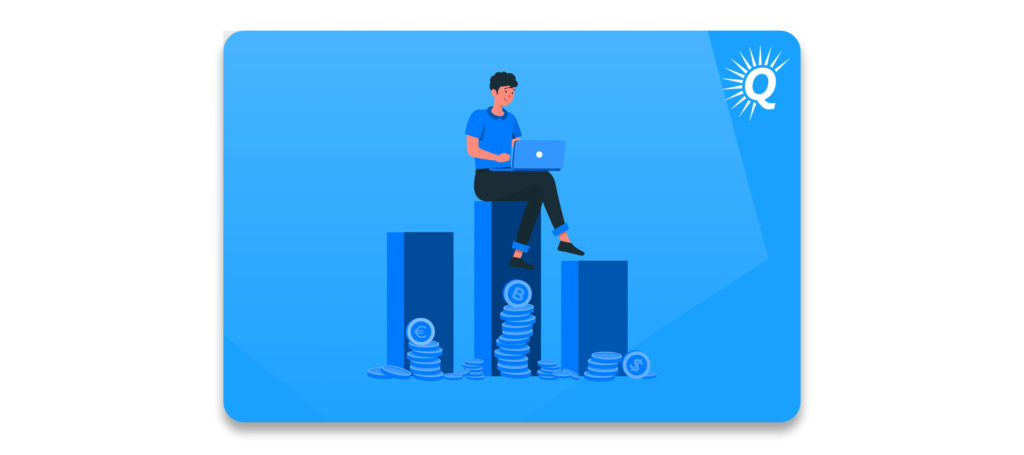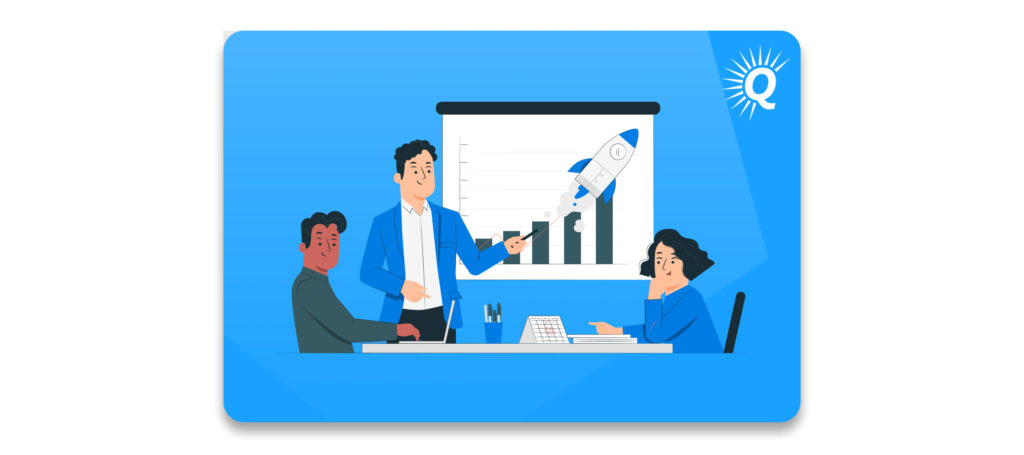Topics:
Never Miss a Beat - Get Updates Direct to Your Inbox
FILTER:


Everything You Need to Know About Selling Your Business to an Aggregator
By Quiet Light
If you’re considering selling your business, you want to be sure that you’re getting a fair offer from a trustworthy potential buyer. But what’s the most profitable way to sell? Intriguing emails and calls from aggregators may have you asking yourself, “Am I going to get more money from an aggregator?”
As exciting as it is to know that someone wants to purchase your business, it’s critical to do some homework before accepting any offers from aggregators. When you understand all of your options, you’ll be informed and prepared to negotiate better deal terms and a higher purchase price.
In this article we discuss:
- What an aggregator is and different types of aggregator business models
- How aggregators make money
- The pros and cons of working with an aggregator when selling your Amazon business
- How to get the best price when selling to an aggregator


What is an aggregator?
Aggregators specialize in business acquisition. They often purchase a number of different businesses, which they grow using their own teams and infrastructure.
Aggregation is a popular strategy in the ecommerce market today, but it’s a business model that’s been around way before the rise of the internet. For example, in the 1980s, there was a private equity rush to buy local mom and pop stores and transform the retail space with strip malls. Aggregators bought up local stores and small chains, grouped them together, and then sold them to larger private equity companies.
Forty years later, retail is moving online and aggregation is increasing in popularity again. Aggregators have the opportunity to purchase small online businesses, group them together, and roll them up into one business. In the last two years, there’s been an explosion of Amazon aggregators in the online FBA business marketplace.
Thinking of Selling Your Business?
Get a free, individually-tailored valuation and business-readiness assessment. Sell when you're ready. Not a minute before.
You might see aggregators referred to by other names such as brand operators, roll-up buyers, private equity firms, brand investors, and acquirers.
There are many different types of aggregator business models that you could interact with as a business owner, including:
- Amazon aggregators
- News or content aggregators
- Shopping aggregators
- Job aggregators
Amazon aggregators
As the name suggests, an Amazon aggregator acquires and consolidates different Amazon brands. For example, there might be three separate Amazon companies: one that sells baby bottles, another that sells swaddle blankets, and one that sells pacifiers.


All of these Amazon sellers have great reviews, high profit margins, and high sales numbers. These factors grab the attention of aggregators, who offer to purchase each separate entity. Because they’re all baby products, FBA aggregators can sell all of the products under one roof.
Some of the top Amazon aggregators include companies like Thrasio, Perch, Unybrands, and Benitago.
News or content aggregators
Content aggregators are individuals, organizations, or tools that gather content from around the web to reuse or republish it. Content aggregators aren’t in the business of original content creation. Instead, they specialize in content curation. A fair amount of content aggregation is automated and powered by AI.
More than likely, you interact with content aggregators on a regular (if not daily) basis. Some examples of news or content aggregators include:
- Apple podcasts
- Google News
- Apple News
- YouTube
- Goodreads
When you search for a specific hashtag on Twitter or Instagram and peruse the results with a few scrolls, you’re utilizing content aggregation systems.
Shopping aggregators
Shopping aggregators retrieve results from around the web to help customers find products with the best ratings, value, and availability.
For example, many customers utilize Amazon as a shopping aggregator. Or, they might click on the “shopping” results of a Google search to see where they can purchase a product from across the web.
Job aggregators
If you run a search on Linkedin to network as a business owner, you’ve used a job aggregator. Other name brand job aggregators you might interact with as a business owner are sites like Indeed or ZipRecruiter.


Why is it becoming more popular to work with aggregators?
In recent years, we’ve seen the rise of the aggregator: an influx of institutional investing in the acquisitions marketplace. In many situations, aggregators are fueling the demand for profitable businesses.
It makes sense why more and more business owners are working with aggregators. After all, aggregators pay you cash for your business, close the deal quickly (often within thirty days), and they cut out all the broker fees. This can seem incredibly intriguing, especially if this is the first time you’ve sold a business.
It can seem that you are going to get more money from an aggregator, and selling your business to an aggregator might be a fantastic business move. But if an aggregator reaches out to you with an offer to acquire your business, it’s always worth it to see if other buyers are also interested in purchasing your business.


If you only interface with one aggregator, there’s no external pressure for them to make you an offer that honors the hard work and dedication you’ve put into building your business. Listing your business for sale with a reputable business Advisor almost always leads to a better purchase price and more favorable deal terms compared to selling your business directly to an aggregator.
How do aggregators run their businesses?
Although their operational infrastructure is complex, the aggregator business model is simple. Aggregators acquire businesses at a 2-3X multiple to add to their portfolio. After the acquisition, those businesses automatically become ten times more valuable.
Just like any other business owner looking to expand their business value, aggregators want a good deal. To land that deal, aggregators often purchase businesses from sellers who aren’t confident in what their business is worth. Once they identify an acquisition target, they reach out with a purchase offer.
Be on the lookout for these common aggregator tactics
What most aggregators don’t tell you in those initial conversations is that they require you to have a few months’ worth of inventory, they hold back a portion of the deal as a “stability payment,” and their deal structure often includes an earnout.
That doesn’t mean you should never work with an aggregator. But it’s important to be aware of common aggregator tactics so that you can make sure that you get the best deal from an aggregator.


Is an aggregator drastically undervaluing your business?
When aggregators approach you directly and make an offer on your business, they’re betting on you not paying attention if they undervalue your company. When you accept an offer that doesn’t honor the true value of your business, aggregators earn more money.
You’ve spent time building a successful business. Don’t deprive yourself of money that you’ve earned by not getting the best possible deal.
Does an aggregator make you second guess your business skills?
Many aggregators are charismatic, well funded, and highly educated. During your initial conversations, they may make you feel proud about your business skills and compliment your success.
But when it comes to the valuation of your online business, ecommerce aggregators might change tones and lead you to second guess how well you know your business. They might claim that valuation is their specialty, not yours, and you should trust the number that they’re giving you when it comes to what your business is worth.
Buy a Profitable Online Business
Outsmart the startup game and check out our listings. You can request a summary on any business without any further obligation.
If an aggregator is making you feel small or uneducated, that’s a red flag. You’ve worked hard to build your business and the buyer shouldn’t need to belittle you or your business experience to close the deal.
Are you being passed down the line through aggregator referrals?
Some aggregators make their money by getting referrals. They’ll review your business and reach out with an offer. But if you decline their offer, they’ll refer you to another aggregator. Then, the aggregator who originally contacted you receives a referral fee from the aggregator they shared your business with.


When an aggregator reaches out to you in hopes of simply passing your information on to the next aggregator instead of closing a deal, they’re no longer an aggregator.
The pros and cons of working with an aggregator
Understanding the pros and cons of working with an aggregator can help you determine whether or not it’s the route you want to go as a business owner looking for a successful and profitable exit.
Pros of working with an aggregator
At first glance, there seem to be numerous advantages to working with an aggregator. Some of those advantages include:
- You receive cash for your business
- A speedy exit from your business—usually these deals close in thirty days
- Not having to pay broker fee
Preparing your business for sale does take time, and your time is valuable. For many sellers, getting the best deal possible is more important than exiting a few weeks earlier, but there are some exceptions to that rule.


For instance, maybe a financial emergency is the reason you’re considering selling your business. Sometimes the best option for you in that situation is to exit your business as quickly as possible.
In those cases, it can be worth forgoing the best possible offer in favor of the fastest option to keep other aspects of your business or personal life from taking a hit.
Cons of working with an aggregator
When you take a closer look, there are some not-so-advantageous aspects of working with aggregators you’ll encounter as a business owner.
There are two main disadvantages of working with an aggregator:
- Aggregators benefit from undervaluing your business
- You don’t have access to a large pool of qualified buyers
There’s a good chance you’re leaving money on the table
Many aggregators are on the lookout to buy businesses directly from individual sellers. One big claim they make is that they save sellers money by cutting out brokers. But when you take a closer look, working with an aggregator to sell your business directly usually results in a significant undervaluing of your business.


Having an accurate valuation of your business is a crucial step to landing the best deal. But it’s common for even intelligent and seasoned business owners to make mistakes in the valuation process. If you’re selling directly to an aggregator, they won’t have a problem with those errors (especially if they benefit from them).
While we highly recommend a professional valuation, it’s also important to understand the basics of the valuation process as a business owner.
Calculating business value with SDE
Most online businesses are valued using something called the SDE Multiple Method. This method involves two parts: the SDE and the multiple.
SDE stands for Seller’s Discretionary Earnings, which is the pre-interest and pre-tax profits that your online business makes before you take into account non-cash expenses, one-time investments, your owner benefits, and any non-related discretionary expenses or income. What that means is that SDE is the total amount of money that your ecommerce business generates for a single owner.
After you know what your SDE is, you multiply that number by the multiple. So if your ecommerce business generates $100,000 in SDE and is valued at a 4x multiple, it’s worth $400,000 ($100,000 x 4 = $400,000).


When you go through the valuation process with Quiet Light brokerage, a knowledgeable business broker looks at every aspect of your business to determine where your business stands in regards to our Four Pillars of Value. These pillars include:
- Growth
- Risk
- Transferability
- Documentation
Working with a business broker can ensure that you calculate your SDE accurately and land on a purchase price that honors the business that you’ve spent time and energy building.
Brokers also can help identify opportunities to increase the value of your business. Past and current growth trends in your business have an impact on how potential buyers perceive its value. Discovering new ways that your business can grow can attract a higher sales price in the future—this is especially true if you’re planning on making your exit six to twelve months from now.
Not only can a broker provide a business valuation and suggestions for growing the overall value of your company, they can also help you avoid mistakes in your add-back schedule and evaluate potential deal structures.
You won’t receive offers from other qualified buyers
Aggregators don’t want you to go to market with your business. They know that they’ll need to offer you a higher purchase price if they have to compete with other buyers.
If you’re getting offers from aggregators who see that you have a valuable business, there are other potential buyers who will want a chance to purchase your business, too.


One of the benefits of working with a business Advisor is that you get access to a wide pool of qualified buyers who are excited at the chance to acquire a successful business. Not only does access to more buyers lead to a higher purchase price, it also provides more deal structure options for you to choose from.
How to maximize your investment from an aggregator
Today, aggregators are on the lookout for successful brands to acquire. So if you’re a small business owner and you receive an inquiry or offer from a private equity firm seeking to acquire your business, there’s a great chance that your business is valuable.
Working with a business advisor to sell your business to an aggregator
How do you get the highest return on your investment from selling your business to an aggregator? It might sound counter intuitive at first, but assuring the most profitable exit comes from making sure you don’t sell only to an aggregator.


Working with a business Advisor will almost always result in a more profitable exit. Accurate financial reports, greater exposure to potential buyers, and increased credibility are all factors that lead to higher offers on your business.
This isn’t to say that you shouldn’t ever work with an aggregator. Working with a qualified business broker and selling your business to an aggregator aren’t mutually exclusive. If you work with a business advisor, you still have the option to sell your business to the aggregator who originally approached you with an offer.
The difference is that when you work with an advisor, other potential buyers will also have the opportunity to make an offer on your business. These additional offers put pressure on everyone (aggregators included) to make better offers that honor the hard work and time you’ve put into building your business.


If one aggregator approached you about the possibility of selling your business, there are more than likely many other buyers out there who would be interested in your company if they had the chance to learn about your business.
Selling your business to an aggregator can be a great option for you as a business owner. Just make sure that you’re getting the best deal possible by knowing all the options that exist in the marketplace.
Thinking of Selling Your Business?
Get a free, individually-tailored valuation and business-readiness assessment. Sell when you're ready. Not a minute before.





